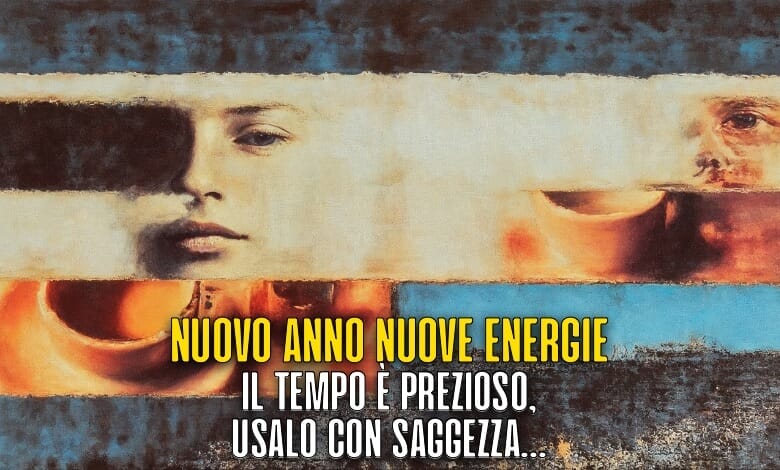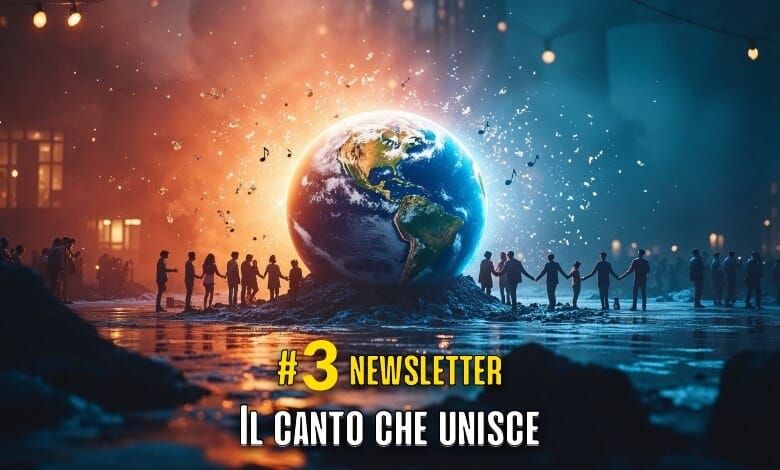Article index
Premise: everything I write is the result of my vocal experience lived, in which someone will be able to recognize themselves, and therefore does not want to place themselves as a vademecum of singing. In this story, the experience, the nature, the thoughts of the writer, in addition to the meetings and musical experiences gained, come into play.
Losing your voice and singing, intended as to get away from the natural voice or free voice in favor of a mechanistic setting, has produced a series of deconstructive effects in me. I will illustrate two, one consequence of the other.
Losing the singing…. The loss of the song sung.
 First of all, we have the voice that, following a mechanistic approach, can induce to perform a series of preliminary and controlled operations that remove the voice from the principle of flowing, flow, leaving happened and getting under observation.
First of all, we have the voice that, following a mechanistic approach, can induce to perform a series of preliminary and controlled operations that remove the voice from the principle of flowing, flow, leaving happened and getting under observation.
As will be understood, in this attitude, the legacy is well beyond the incident, the energy form of the singing and the natural vibrate are irreparably lost and try to obtain these tools, which are consequences of free singing, through attitudes of a song Of the mechanistic mold, it did nothing more, in my case, than to add further mental and physical ballast (tension) to an already overloading superstructure.
All this led me to lose the sense of singing.
In these conditions, I happened to spend hours of study without achieving any result, which is not artificial and never rooted, because it is to be reconstructed at each session of approach to singing. It derived that from singing I walked away and what I tried to live and define as a singing was actually a surrogate.
The session was thus transformed, both in approaching and during the performance, into a moment of great mental and physical effort, in which the return of well -being and energy was absent, and at the end of which a great sense of tiredness remained, as well as Many demand points. The song had no longer become a pleasure.
Lose singing ... the loss of vocal and artistic identity
In losing the natural voice (term to be explored in another location but which is understood here as something opposed to an artificial and built item) an even more serious loss is inserted. Since the voice is the representation of ourselves, the removal from what belongs to us in the perspective of a construction of what in my case had become an unexpressive monolith, it did nothing but return a vocal figure that did not represent me.
The resulting feeling is similar to looking in the mirror without recognizing itself. In the case of the voice, it is not the view that determines what the mirror gives us back but the hearing and above all the body that hears its own voice as something stranger and reacts accordingly by implementing a whole series tensions and constraints that are located in Various points of the body (solar plexus, lower limbs etc ... therefore not necessarily in the area next to the larynx).
The consequence of this is, in succession: the loss of the pleasure of singing, the loss of the expressive and musical ability of singing, the loss of artistic identity and more generally of human identity.
Losing the singing and losing the voice means not being able to find vitality and joy in one's vocality which on the contrary returns strong elements of tension, which go to affect not only on the professional side but on everyday life. Because the voice does not live only in study or performative sessions but is always present (also in silence!). This can lead to a sense of insecurity that can undermine the foundations of self -determination of the individual (in the sense of person who expresses herself and its individuality).
The recovery of singing
In this path of deconstruction (unwanted) of my vocality and in the (fortunately) subsequent recovery path, several years of artistic life have been lost. Because losing your voice and singing means losing all one's musicality!
It is like trying to throw the water out of a boat that continues to embark water .... Intimate, until the hole does not darken, you will do nothing but try to be afloat, and maybe you will succeed, but you will never be able to take off and enjoy the trip.
But not everything comes to harm. Traveling the streets of mistakes, makes them understand better.
Also understanding that from this situation can come out is a message of comfort for those who find themselves in a situation of impasse, for those who have heard (or for teachers who have said) "leave it alone", in words as through looks and gestures of no confidence.
What changed my direction? First personal motivation.
Secondly, it was essential to discover artistic and educational figures that move on other shores compared to those I have covered up to that moment. The texts of Antonio Juvarra for example and the teaching of Albert Hera that I had the good fortune to cross in my vocal research path. Through these meetings I realized that there was more, another way of making singing live.
I understood that singing did not exist only in the arrhenoid muscle , in the cricoid, in the tilting, in pushing the abs, in the mask, the head voice, the Cry, the yawn ... (all concepts that in my case forced and harnessed the voice ) ... but there was also the breath, the flow and the column of air, the space, the attack of the sound .... CONCECTS AND SENSATIONS that may seem obvious for some but not for a pupil that blindly entrusts his voice To others and then find yourself in the place where until then he had lived (saying this you do not want to download the sense of responsibility that, as far as I am concerned, in learning is twofold and involves all the actors at stake: teacher as a pupil ).
The vocal recovery path, finding the song, led me to be able to make my first album.
Recovering singing led me to feel that I could express my musicality, which I can carry on day by day knowing that I am taking a path made of small steps, without that feeling of turning around the same point without solutions of any kind and to return to Our boat, to continue trying to stay afloat so as not to sink.
But above all, recovering the voice led me to take pleasure in singing and recovering my identity. Because the voice is our identity, it is what we present to others with, is what connects us with what is out. I would say that it is not a trivial thing.
Read also the article: Edward Tylor: Culture and singing inseparable elements








